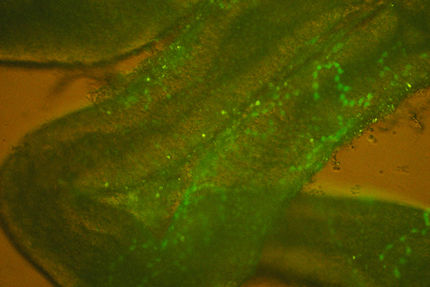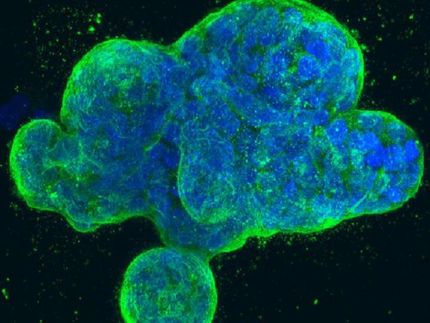Human sperm created from embryonic stem cells
Advertisement
Human sperm have been created using embryonic stem cells for the first time in a scientific development which will lead researchers to a better understanding of the causes of infertility.
Researchers led by Professor Karim Nayernia at Newcastle University and the NorthEast England Stem Cell Institute (NESCI) have developed a new technique which has made the creation of human sperm possible in the laboratory.
The NorthEast England Stem Cell Institute (NESCI) is a collaboration between Newcastle and Durham Universities, Newcastle NHS Foundation Trust and other partners.
Professor Nayernia says: "This is an important development as it will allow researchers to study in detail how sperm forms and lead to a better understanding of infertility in men – why it happens and what is causing it. This understanding could help us develop new ways to help couples suffering infertility so they can have a child which is genetically their own."
"It will also allow scientists to study how cells involved in reproduction are affected by toxins, for example, why young boys with leukaemia who undergo chemotherapy can become infertile for life – and possibly lead us to a solution."
The team also believe that studying the process of forming sperm could lead to a better understanding of how genetic diseases are passed on.
In the technique developed at Newcastle, stem cells with XY chromosomes (male) were developed into germline stem cells which were then prompted to complete meiosis - cell division with halving of the chromosome set. These were shown to produce fully mature, sperm called scientifically, In Vitro Derived sperm (IVD sperm).
In contrast, stem cells with XX chromosomes (female) were prompted to form early stage sperm, spermatagonia, but did not progress further. This demonstrates to researchers that the genes on a Y chromosome are essential for meiosis and for sperm maturation.
IVD sperm
The IVD sperm will not and cannot be used for fertility treatment. As well as being prohibited by UK law, the research team say fertilization of human eggs and implantation of embryos would hold no scientific merit for them as they want to study the process as a model for research.
"While we can understand that some people may have concerns, this does not mean that humans can be produced 'in a dish' and we have no intention of doing this. This work is a way of investigating why some people are infertile and the reasons behind it. If we have a better understanding of what's going on it could lead to new ways of treating infertility," adds Professor Nayernia.
Technique
The Newcastle University team have developed a method for establishing early stage sperm from human embryonic stem cells in the laboratory.
The embryonic stem cells were cultured in a new medium containing vitamin A derivative (retinoic acid), in a new technique established by the team. Based on this technique, the cells differentiated into germline stem cells.
These expressed a protein which was stained with a green fluorescent marker and they were separated out by FACSTM (Fluorescence-activated cell sorting) using a laser.
After further differentiation, these in vitro derived germline stem cells expressed markers which are specific to primordial germ cells, spermatogonial stem cells, meiotic (spermatocytes) and post meiotic germ cells (spermatids and sperm).
These results indicated maturation of the primordial germ cells to haploid male gametes – called IVD sperm - characterised by containing half a chromosome set (23 chromosomes).
Original publication: Stem Cells and Development 8th July 2009
























































